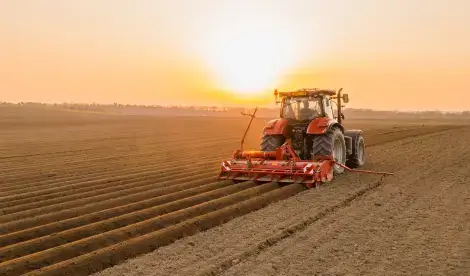Abbey Watkins ACCA
- Accounts Manager
- 44 (0)1227 768231
- Email Abbey
Suggested:Result oneResult 2Result 3
Sorry, there are no results for this search.
Sorry, there are no results for this search.
View all peoplePublished by Abbey Watkins on 9 September 2025
Share this article
For many UK farmers, 2025 has brought an unprecedented set of financial and operational challenges. From unpredictable weather and rising costs to changing subsidy regimes and an uncertain tax landscape, the pressure is mounting. For many, the financial stability of their business is under threat.
One of the biggest disruptors to day-to-day operations has been extreme and unpredictable weather. Hot, dry weather and flooding are becoming more common, damaging crops, reducing grazing land and impacting livestock productivity. At the same time, post-Brexit changes to government support schemes, including the recent closure of the Sustainable Farming Incentive (SFI), have left many businesses without the subsidies they had built their budgets around.
Staffing is another ongoing concern. Since 2019, average staffing costs have increased by 25%, a trend that continues in 2025 with further rises in National Insurance and National Living Wage obligations. Tightening immigration policies have also created seasonal challenges. This is further compounded by increased energy, insurance, and input costs, putting pressure on profit margins across the board.
The situation is exacerbated by trade deals with countries like the US and Australia which have the potential to drive down prices. Many farmers are now facing serious cash flow issues. Some are being forced to sell land or postpone investment plans, with nearly half of family farms cancelling or delaying projects this year, according to recent NFU data.
Data from the Government’s latest Farm Business Survey paints a mixed picture. While the average farm business income rose by 12% to £96,100, this was mostly due to higher output prices and agri-environment payments and not structural improvements. Meanwhile, average farm liabilities have continued to rise, particularly among pig and poultry operations, where debt levels now average £1 million.
With the Basic Payment Scheme being phased out by the end of the agricultural transition period in 2027, many farms are becoming increasingly reliant on external finance to maintain operations or invest in their future.
As margins tighten, more farmers are looking to funding options to support their businesses. A wide range of finance products are now available, many of which are tailored to the specific needs of the agricultural sector:
Specialist lenders with experience in the farming sector can often offer more suitable terms than high street banks.
While the financial outlook for 2025 remains challenging, farmers who take proactive steps to manage cash flow and secure appropriate funding will be better positioned to weather the storm. Whether the goal is to bridge seasonal gaps, invest in equipment, or diversify operations, the right finance strategy can help keep farms sustainable — and even thriving — in a difficult market.
We have a dedicated Agricultural and Funding team that works in conjunction to support agricultural businesses. We have access to a wide range of lenders and experience in assisting clients obtain the right funding to help their business succeed. Get in touch today.
Share this article
This site is protected by reCAPTCHA and the Google Privacy Policy and Terms of Service apply.
Related people
This site is protected by reCAPTCHA and the Google Privacy Policy and Terms of Service apply.
Our complimentary newsletters and event invitations are designed to provide you with regular updates, insight and guidance.
You can unsubscribe from our email communications at any time by emailing [email protected] or by clicking the 'unsubscribe' link found on all our email newsletters and event invitations.
This site is protected by reCAPTCHA and the Google Privacy Policy and Terms of Service apply.





